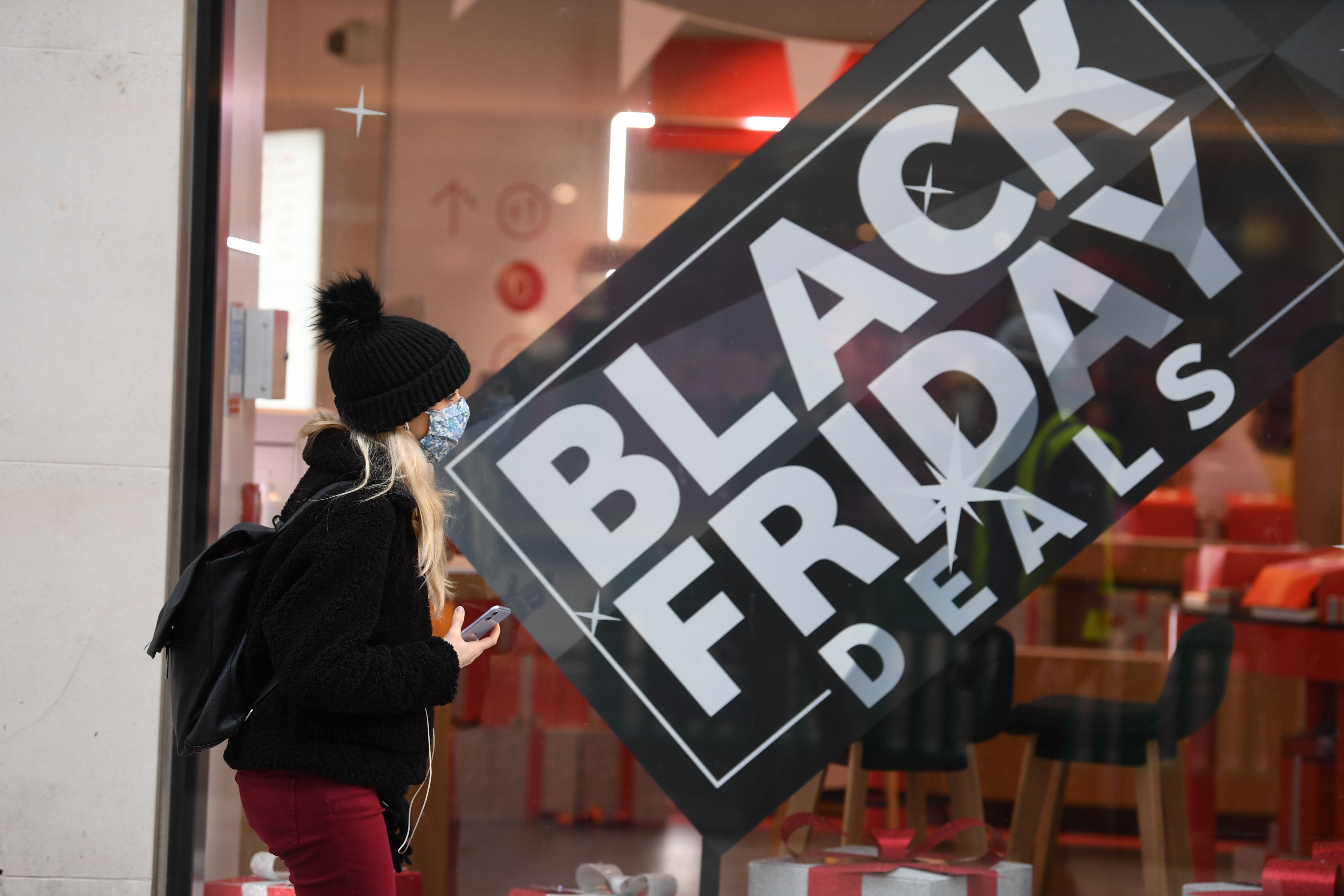Bargain or bust? How to curb Black Friday spending
Don’t be caught out – many deals may not be as generous as they appear

The Christmas adverts are here, we’re being warned of shortages of festive items, and this week Black Friday returns to shower us with so-called bargains.
It’s a day when retailers, allegedly, slash the price of stock giving us a chance to bag a bargain a month before Christmas Day.
But buyers are being warned to look before they leap in a bid to protect everything from their wallet to the planet.
There’s no denying the sales on offer. John Lewis is promoting Black Friday deals across its shop with 20 per cent off many leading brands including Lego, Barbour, and Le Creuset. At Argos you can choose from TVs, hoovers, tablets and pretty much anything else on a Christmas list with many cut down to its “lowest ever price”.
It’s the same at most high-street shops, and if there’s something on your list, there’s a good chance you can pick it up this week at a discounted price.
But it’s only a bargain if it’s something you can afford and an item you need. This can be hard to remember when receiving constant emails with “urgent” messages in bold red fonts urging consumers to part with their money.
This year it comes at a time when living costs are rising across the board.
With inflation hitting 4.2 per cent in October, the highest rate in 10 years, and as a country still very much in the midst of a health and economic crisis, the thought of Black Friday will leave a particularly bitter taste for many.
Often, many of these bargains may also not be as genuine as they first appear.
Last year an investigation by Which? found that 98 per cent of discounts were available for the same price or cheaper in the six months before the sales and just 1 per cent of the items it tested were cheaper on the day.
Yet 57 per cent of us are planning a Black Friday purchase, according to research from TopCashback, with 20 per cent set to spend more this year than they have in previous years.
The hype around Black Friday has certainly grown in the last few years, but this bombardment of adverts promising a limited time to buy something heavily discounted is also pressuring people into buying items they don’t need and can’t afford.
Stock shortages and rumours of certain items – including toys – not being available for Christmas, are also adding to the pressure for people to spend money on Friday.
The majority of consumers who bought items in the 2020 Black Friday sales afterwards said they regretted their purchases, according to research from Which?.
Three-quarters who bought DIY products, 66 per cent who bought home appliances, 64 per cent who bought baby and child products, and 53 per cent who bought home and furniture items later said they regretted it.
Many of those also used credit products to buy the items, because they didn’t have the cash to pay for them.
There is also a huge environmental impact. It’s only a week since the end of Cop26, the global summit in Glasgow full of serious warnings about our culture of consumerism.
Spending more money on things we don’t need or want, which will later end in landfill, is surely not the actions of a population with a very real ticking time bomb in their hands.
Many firms have been promoting a “Green Friday” as a counterbalance, taking the chance to speak about ethical and environmental policies. While this is still a way of promoting a brand, it’s an interesting and positive change compared to the last few years.
For example, hiking brand Osprey is donating 20 per cent of sales on the day to the Nimsdai Foundation, which carries out mountain clean ups. It is also one of many firms to actively promotes sustainability, with customers able to send back broken backpacks for free to be repaired.
If you are planning a Black Friday purchase, it’s important to make a list in advance of exactly what you need. Alongside this set a budget, it’s easy to get carried away by the numerous emails, and other messaging to spend more than you need to.
Once you find the item you want, check the price on several different websites to find the cheapest and run it through a free price checker tool, such as Price Runner or Price Spy to see just how much the discount is worth.
Ele Clark, Which? retail editor, said: “Don’t feel rushed into making an impulse purchase. Thinking about what you genuinely want or need to buy in advance of Black Friday, checking product reviews and researching the item’s price history will help ensure you stay within budget and get the best value for money in the sales.”
Subscribe to Independent Premium to bookmark this article
Want to bookmark your favourite articles and stories to read or reference later? Start your Independent Premium subscription today.

Join our commenting forum
Join thought-provoking conversations, follow other Independent readers and see their replies